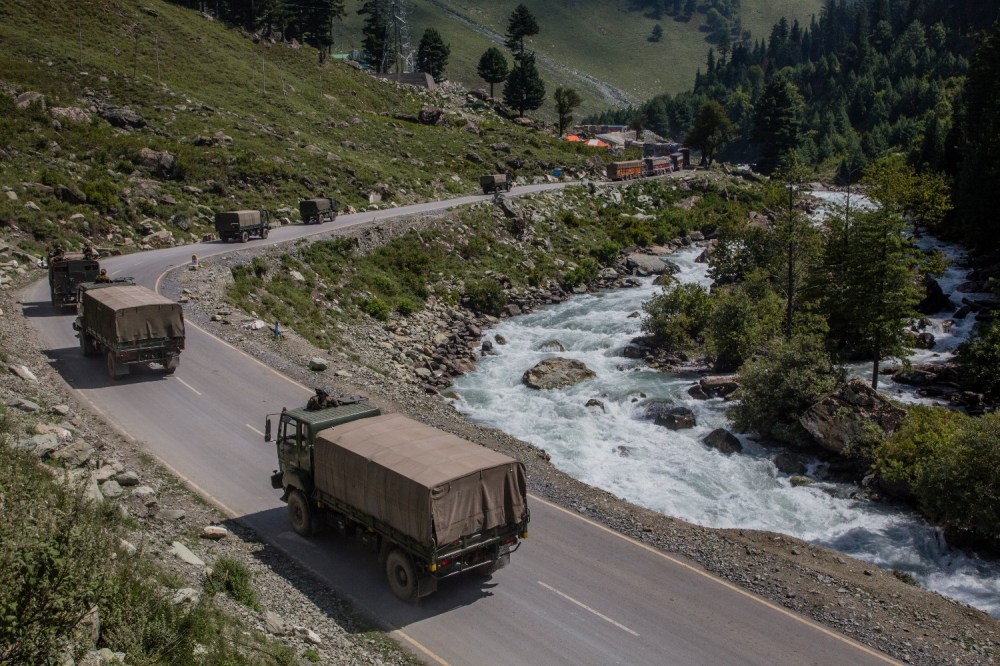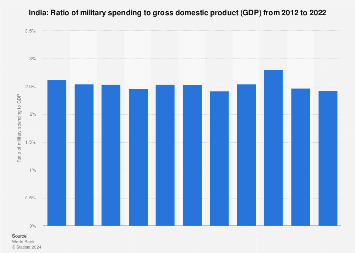Moving away assets from Taiwan and SCS will nearly guarantee SCS falling into the hands of the USA. You sure you want to fight over a barren piece of cold-arid desert with no historical meaning or significance to China with 100% of your troops and equipment and lose your shipping routes?
We already are, my friendAnd we are hopeful China will give us some more opportunity.
Laughable, what logistics are you talking about? We already are on the Himalayas, drilling tunnels and making roads, our supply routes and centers are already set-up for Ladakh since 60s. Our airlift capacity is better than average and we can swiftly push supplies if our roads are compromised.
Instead, let's talk about China's supply routes. Insignificant amount of supplies are created in Tibet region, and 99% of supplies come from mainland China and stored in temporary ghost-towns created in Tibet region. China's supply lines are stretched-thin, more perilous, and vulnerable.
Look who's talking ! Regional hengemon ! Only Pakistan is our enemy, others are on good terms. Nepal communist party tried to sell the country to China. Then it was reminded of its status by India, now it is on backfoot.
Ah, you Chinese? Then wear your flag gracefully!
That's what I've been trying to point out to you. The Chinese don't need to move assets away from SCS / Taiwan theater.
Funny thing is, India is a bit like China in this regard, but China actually has islands in its ocean and that's its primary focus. But China has a dual land/naval orientation, which is tied together by an air force. The thing is, India is a land problem, not a naval problem, and things like Taiwan / SCS are naval problems, not land problems.
In other words, when India opens a front on containing China, what gets drawn in is the PLAGF, and to a lesser extent, the PLAAF. The PLAN can't actually deploy against Kolkata / Mumbai because of the logistics distance. So when you're thinking you're drawing Chinese resources away, you're drawing away the part of the Chinese military that's otherwise remaining unused.
And, well:

Why China Is Winning Against India
The military standoff in the Himalayas is often seen as a stalemate between two nuclear powers. But New Delhi cannot afford the status quo.
The point being made here is that the InN already had a budget cut because of the Chinese threat. If the Chinese are oriented toward the SCS / Taiwan as their primary mission, the deployment of ground forces has already reduced the InN's ability to intervene in SCS / Taiwan.
===
I'll bring in another analogy. India's position vis-a-vis China right now is similar to China's position vis-a-vis Japan in the early part of the 20th century, although there are quite a few differences (India is more unified than China was versus Japan in the early 20th century, a few insurgencies here and there, but otherwise federal government. The RoC had most of its territory controlled by warlords paying nominal obeisance to the Nationalist government). Unfortunately for China, it was a pre-industrialized society facing an industrialized society, and what's more, Chinese nationalists screwed up. Apparently Chiang Kai-Shek / Jiang Jieshi was seeking to build up against the Japanese forces, but Chinese nationalists forced Chiang's hand into opening the war early. Moreover, if you look at India's present sanctions against China, it resembles China's May Fourth boycotts against Japan, which actually forced Japan to take a military-centric approach instead of a trade-centric approach in expanding its regional dominance.
The end result was that Chiang sacrificed his best divisions to defend Shanghai from the Japanese, to achieve only a delaying action. Chiang, likewise, saw his political system wrecked by years of war against the Japanese, including an uprising against Nationalist levies. The Chinese saw virtually no success against the Japanese, in contrast to the Soviet resistance against the Nazis. Afterwards, the Nationalist system was so weakened that it was unable to stop the Communists, exploiting contradictions created by the war, from defeating them and taking China.
In the same way, Indian nationalists are calling for a hard offset (i.e, major purchases of military equipment) versus China that's unaffordable. I am telling you that a softer offset (i.e, focusing on nuclear deterrence) is more affordable and deters China without allowing China to mushroom Indian defense budgets.
If Indian attitudes are as what they appear, and we can expect a hard build-up in Indian military capabilities, I will wait to see what happens to India's defense spending as a percentage of GDP. If it goes up to 5%, that is good for China, because the taxes and debt involved will weaken and slow India's economy, giving China more time to deal with its primary antagonist, the United States. That's mission accomplished.
===
FYI, contacts in Cong suggest that Indian politicians and analysts know what the strategic balance is and what's happening. But they can't control the bottom elements (i.e, you) from forcing a hard line.

 ,..not out of scare..but out of pure love for India's economy.
,..not out of scare..but out of pure love for India's economy.